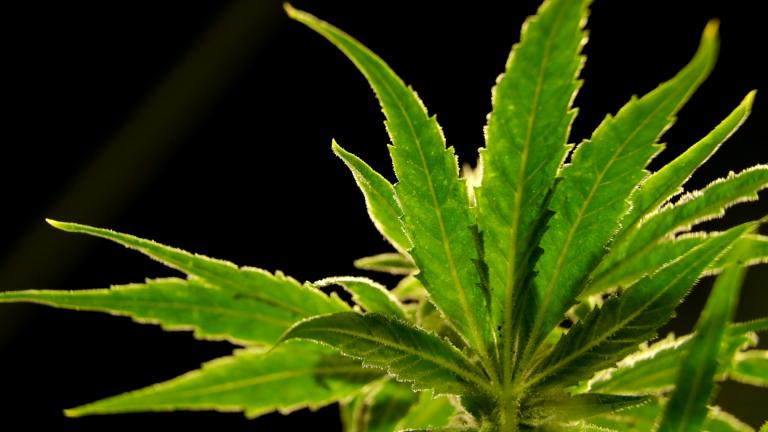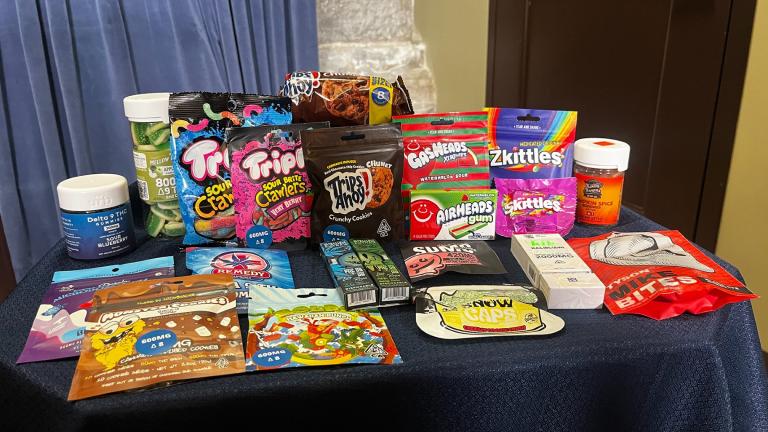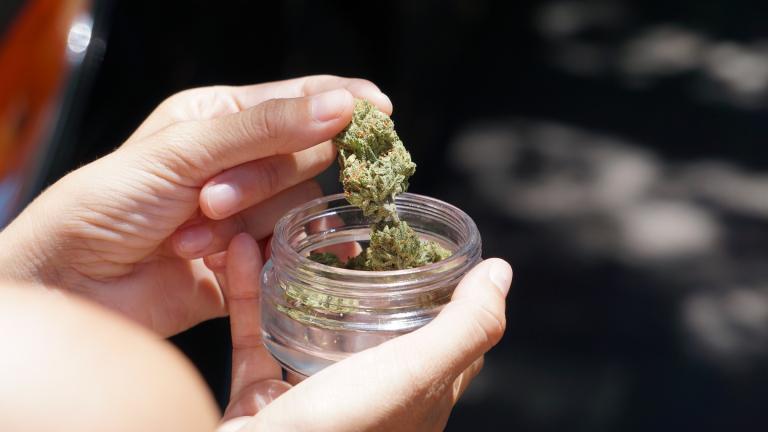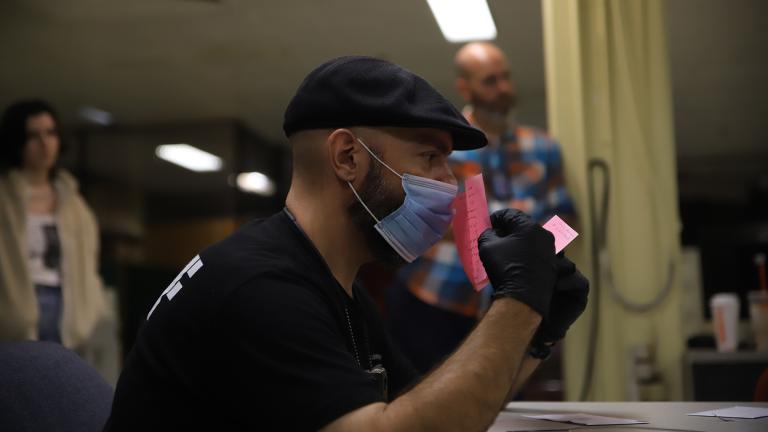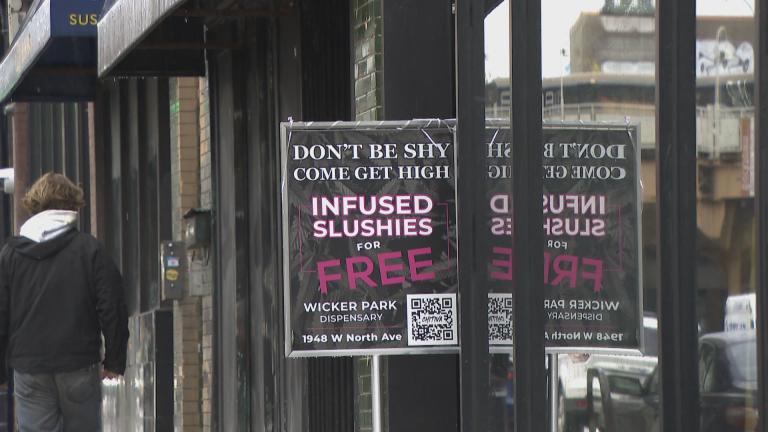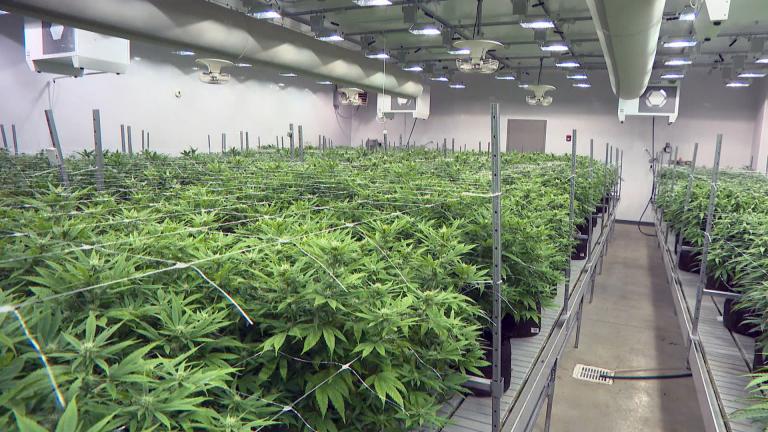Recreational marijuana sales in Illinois topped $39.2 million in January – the first month pot was legal under a new state law – but it’s likely that number would have been higher had there been enough weed to keep up with demand.
That disparity has led some dispensaries to limit how much product customers can purchase, or to require customers to make appointments. That’s put some stress on patients registered with the state to use cannabis as medicine, some of whom complain about – or at least fear – a lack of access.
While Illinois law makes a point to prioritize medical patients over recreational users, just what that means has been unclear.
“The Act does not specifically define how a dispensary holding both (medical and recreational dispensary) licenses is to prioritize Illinois patients,” according to a memo sent Thursday afternoon to dispensaries from the Illinois Department of Financial and Professional Regulation.
The memo begins to spell that out with three practices IDFPR says “would satisfy the minimum requirements” of the law.
The new guidance requires all existing marijuana dispensaries to maintain at least one “point-of-sale station” exclusively for patients per every five active stations; every cannabis product in dispensaries’ inventory can be purchased by medical patients – none can be reserved for recreational users only – and any product sold as medicine is to be taxed as such; if dispensaries are limiting how much weed customers can buy, that limit must be 2.5 times “greater” for patients than for adult-use purchases.
Meanwhile, critics say the law isn’t living up to its promises of equity.
“There’s no plan of inclusion for the little guy who’s been targeted all their lives,” said Mark Carter, a black man who grew up in North Lawndale and went to prison in the ‘90s on a drug charge. “If we don’t have some type of authorization from the city then the police will be used once again to incarcerate.”
Carter is advocating for $100 pot peddlers’ licenses.
“These peddlers’ license would then give the opportunity to the little guy, and the little lady, you know, give the opportunity to them to make some of these dollars. This is a multibillion-dollar (industry),” Carter said.
There’s little to no minority ownership of Illinois’ existing marijuana dispensaries, though that could change when Illinois in May awards its next round of dispensary licenses.
Some 700 individuals or entities submitted 4,000 license applications; only 75 will be awarded. Winners will have to pay a $30,000 license fee, on top of the non-refundable $5,000 due at the time applications were submitted.
The law aims to give a leg up to applicants who were disproportionally impacted by the war on drugs. When applications are scored (a process which is kept private), extra points will be awarded to those from economically disadvantaged areas; who were arrested, convicted or incarcerated for a minor cannabis crime or who are related to someone who was; or whose business plans include hiring opportunities for individuals who fit either of those categories.
But that’s not until May – by which time cannabis will have been legal in Illinois for at least five months.
How well the program’s going thus far “depends on which side of the fence you’re on,” said Ald. Jason Ervin (28th Ward).
“If you are a dispenser it’s working out very well. If you’re trying to become a dispenser it’s not working out so great. If you’re a consumer it’s working out great. But what I’m finding is people are still talking about the lack of participation from the black and brown community in this bonanza. Again, $40 million in the first month, not one cent of that money going to black and brown folks, that’s a challenge,” Ervin said.
Ervin had pushed for Chicago to delay recreational pot sales until July, as a means to get more minority cannabis business owners on board.
He said Thursday that negotiations with the city and state are ongoing.
While he’s not explicitly planning on it, Ervin said he’ll consider introducing a peddlers’ license ordinance.
“If we need the ordinance to start a conversation on diversity and equity in the dispensing of cannabis, I’m open to that,” he said.
There’s no mechanism for that in Illinois law, however, and Chicago isn’t pursuing cannabis street vendor licenses.
“Ensuring that local residents — particularly those from disadvantaged communities — can benefit from jobs and economic opportunity created by the newly legalized cannabis industry remains a top priority for Mayor Lightfoot,” the mayor’s office said in a statement. “That’s why last weekend, the City hosted its first-ever Cannabis Resource Fair to encourage dispensaries and businesses benefiting from the growth of this industry to reach back into the community to involve local residents who may be interested in becoming the next employee, owner or investor in Chicago’s newest industry. As part of this effort, more than 5,700 interested residents registered to attend the fair to connect with more than 65 cannabis businesses, organizations and non-profits, half of which were accepting applications and resumes.”
Chicago officials are still figuring out exactly where marijuana smokers can legally light up, beyond their own homes (though even that’s not always permissible, given that landlords and condo associations can forbid it) after Mayor Lori Lightfoot’s plan stalled.
Follow Amanda Vinicky on Twitter: @AmandaVinicky
Update to this story: On Friday, Feb. 7, IDFPR announced that dispensaries can sell marijuana to medical patients until 10 p.m. Previously, they were only allowed to sell to medical patients from 6 a.m. to 8 p.m.

